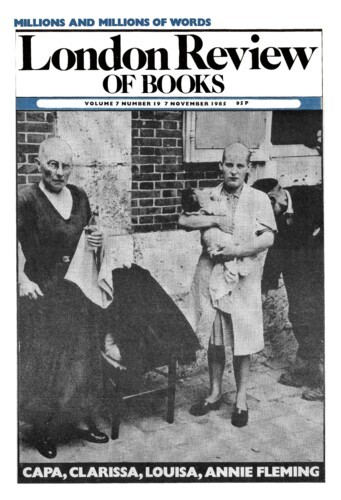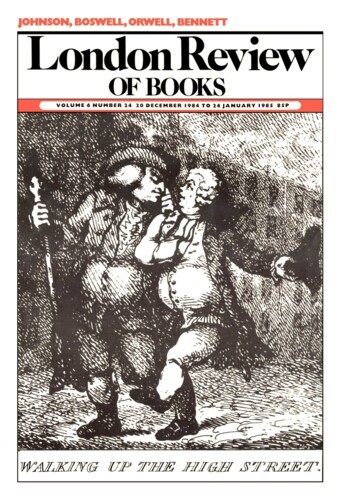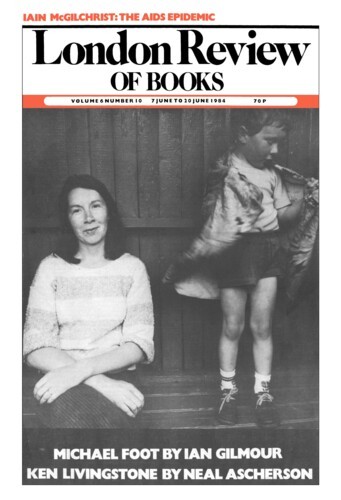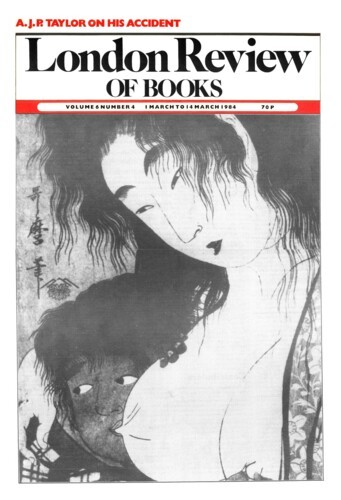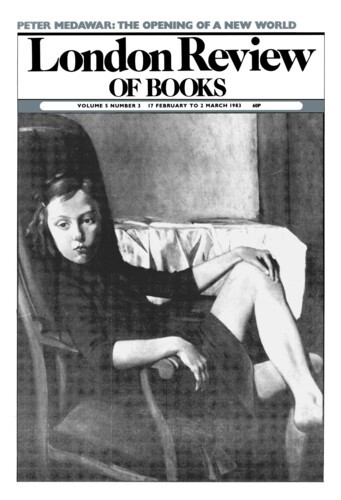A Resonance for William Styron
Gabriele Annan, 7 November 1985
In 1972 a 26-year-old American schizophrenic, Anthony Baekeland, killed his mother Barbara with a kitchen knife. They had been sleeping together. It was her idea: she thought it would cure his homosexuality. An earlier cure by means of a French girl had not been completely successful; Tony’s father, Brooks Baekeland, had gone off with the girl he married after Barbara’s death. This occurred in Cadogan Square, so Tony was sent to Broadmoor. Eight years later he was released, extradited, and sent to live with his maternal grandmother in New York. He stabbed her with a kitchen knife. She survived and he was sent to the penitentiary on Rikers Island, where he killed himself by putting his head in a plastic bag. By this time it was 1981.
